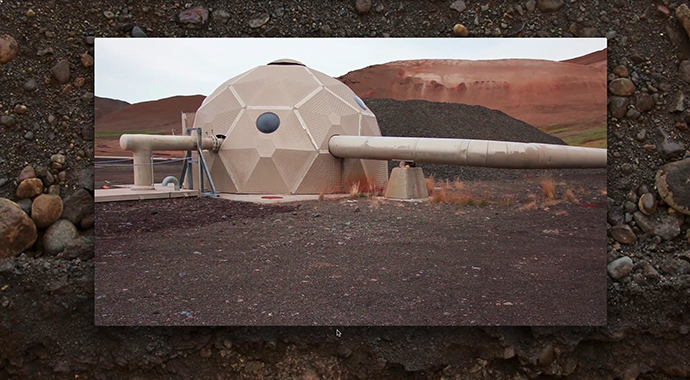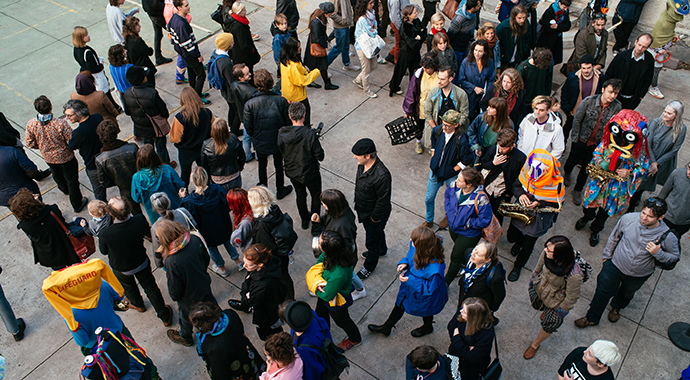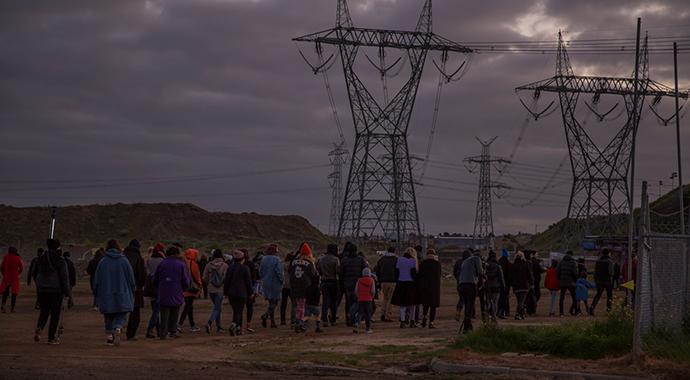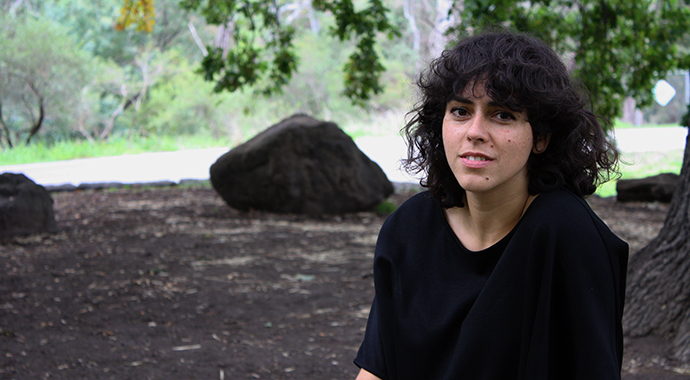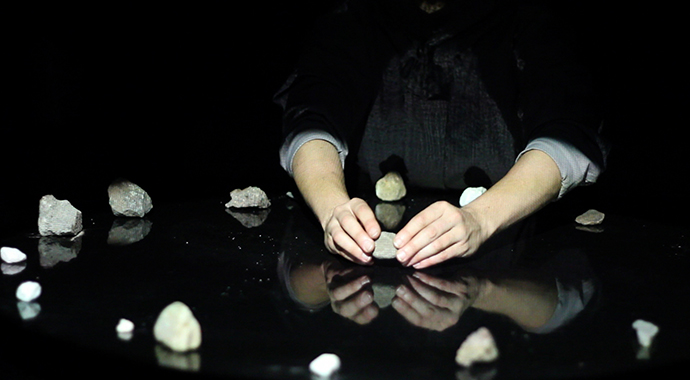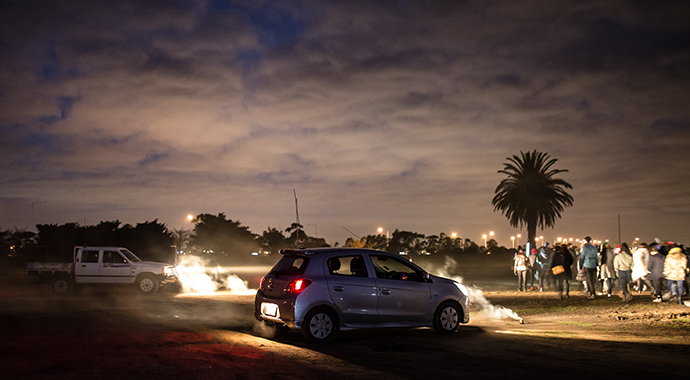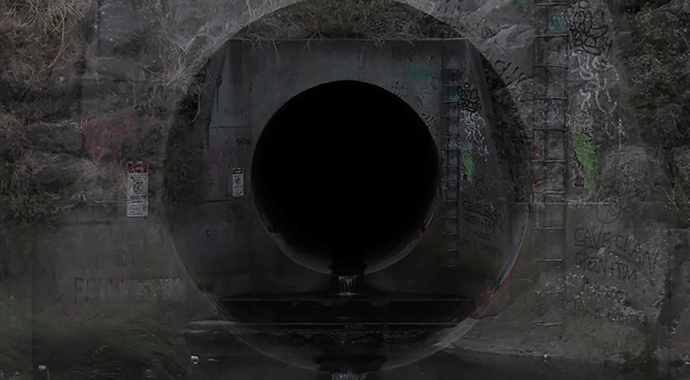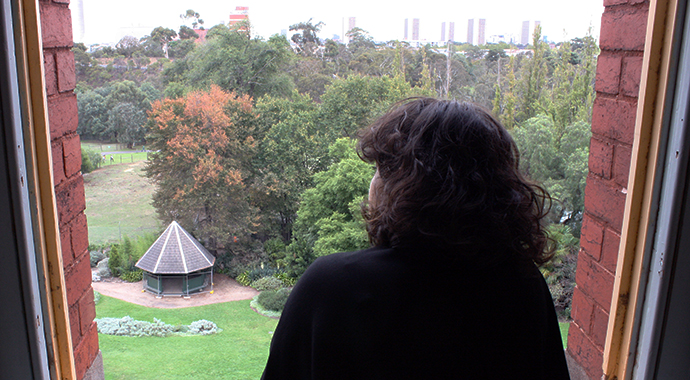Zoe Scoglio creates sites between worlds
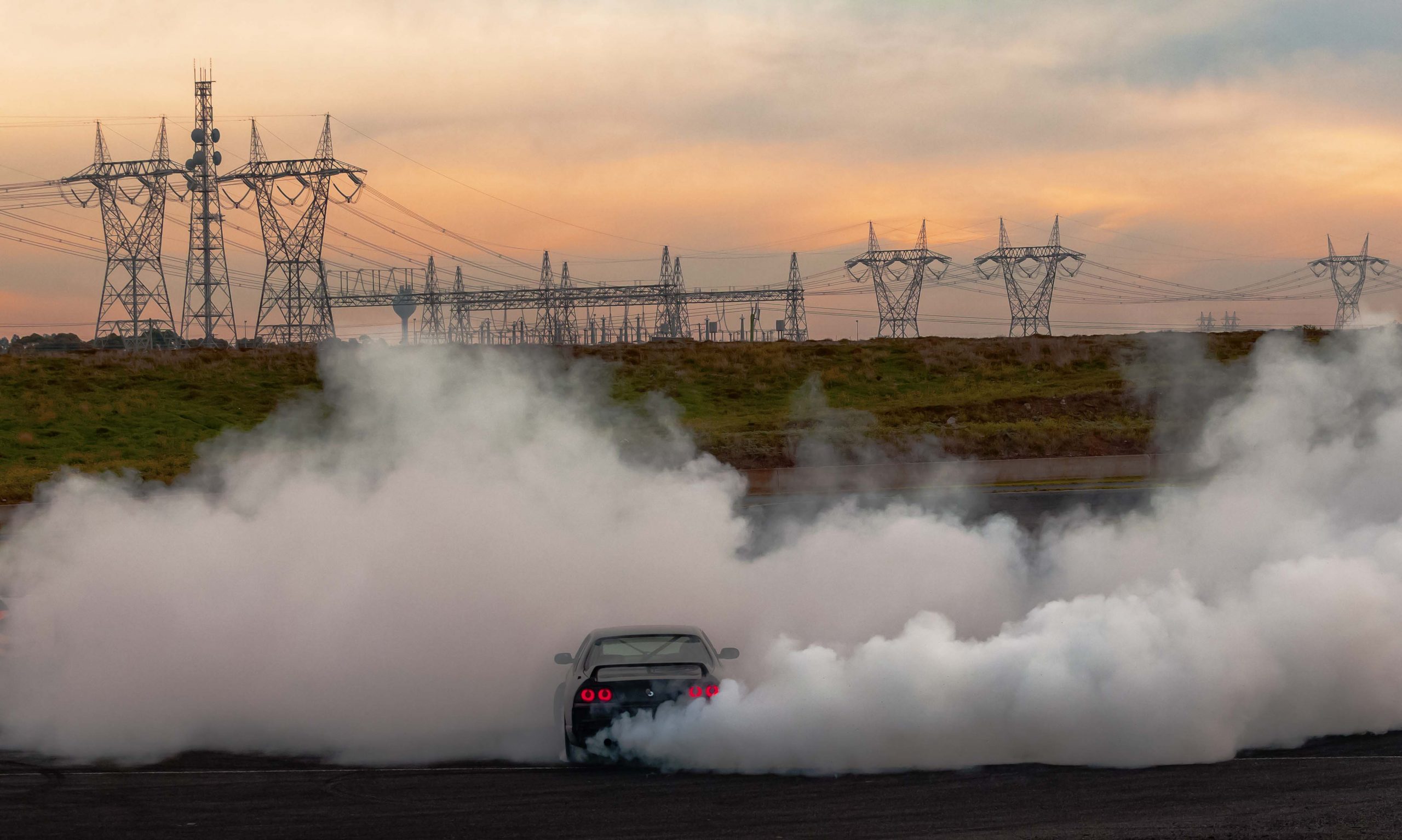
Zoe Scoglio is thinking about time. Contemplating a continuum stretching from the Big Bang through to the present and into possible futures in which humans may no longer inhabit Earth, Zoe’s art presents a perspective that contextualises our fleeting lives within this vast cosmological timeframe. Melding video, sound and performance in works ranging from single-channel video pieces to complex participatory performances, Zoe’s interdisciplinary practice has a distinct focus on materiality. Her works encourage us to question the physical connections between the Earth and our bodies, incorporating diverse forms – rocks and sand, sonic vibrations and various human interventions like technologies, construction materials and human-made landscapes – to remind us of our physical entanglement with the environments in which we reside.
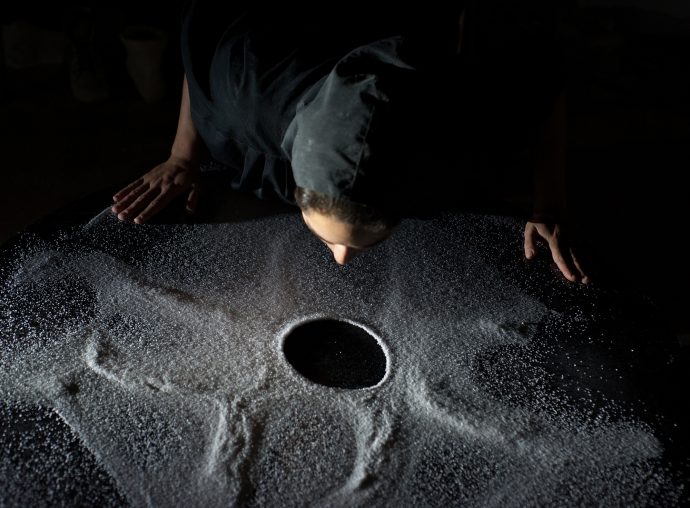
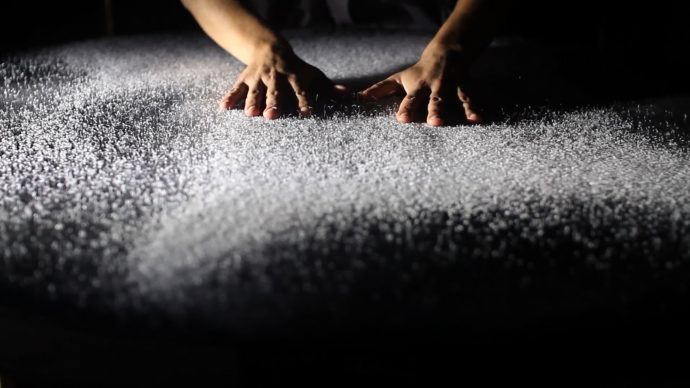
When I met with Zoe recently, she was gearing up for a trip to the Netherlands to present Shifting Ground (2012) at Music Theatre Now and the Operadagen Rotterdam festival. Also in the pipeline are new works in Melbourne, Sydney, and Tasmania, plus a project with Melbourne Opera, creating video for its production of Wagner’s Tannhäuser. Many of the new works are driven by Zoe’s interest in the notion of revolution – including planetary, environmental, political, temporal, and philosophical cycles. “Revolution directs us towards a future but at the same times returns full circle,” says Zoe. “I’m interested in the tensions and contradictions that arise when you stretch out to the future and the past simultaneously… a reminder that everything is always turning, always in motion.”
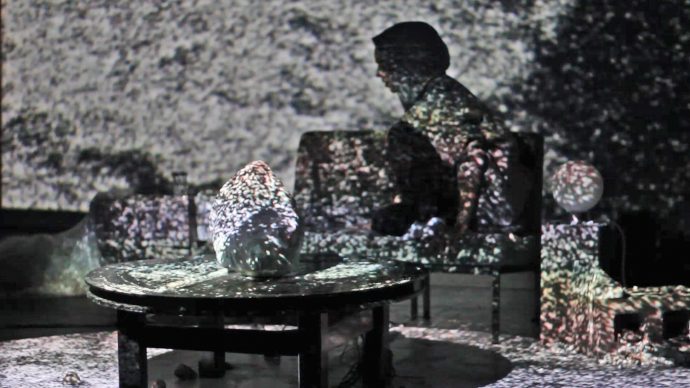
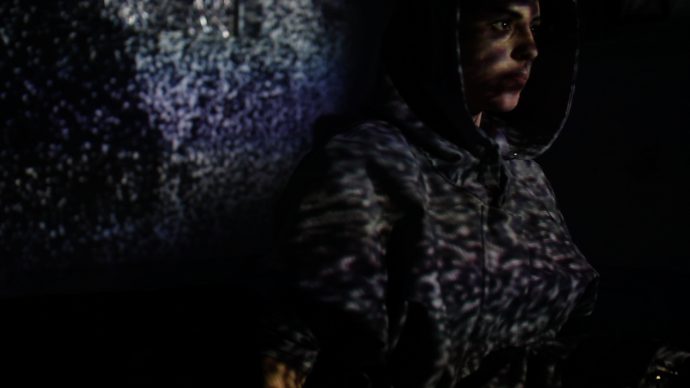
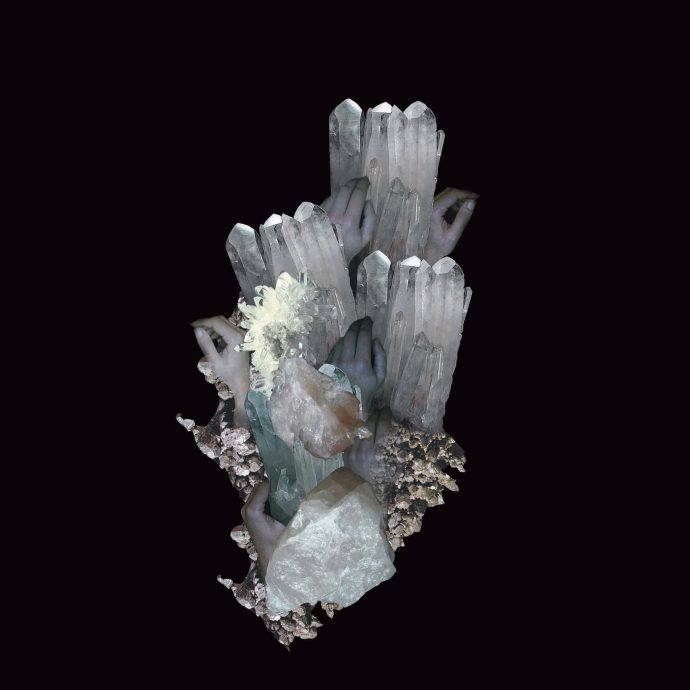
Zoe first began exploring these ideas of revolution in her major 2015 work MASS, a large-scale collective performance commissioned as part of Field Theory collective’s annual site-responsive performance program Site is Set, and presented at the Calder Park Raceway. In MASS, a car-centric setting becomes the site for exploration of the relationships between planetary motion, human existence, and our alteration of the Earth through construction, excavation and fossil fuel-burning machines. The work, which Zoe describes as “an invitation to consider ourselves as geology in motion”, continues an ongoing investigation (beginning with her 2009 work Rock Bodies) into the evolutionary bonds between the minerals that form the Earth (and that are mined by humans) and the minerals present within our own bodies. “We are nature. Everything is nature,” says Zoe. “I see us as geological entities in the sense that all biological life comes from geological matter. The theories of abiogenesis – the first forming of biological life – allow us to trace ideas of common origin all the way back to rocks, implying a sense of ancestry to the geological world.”
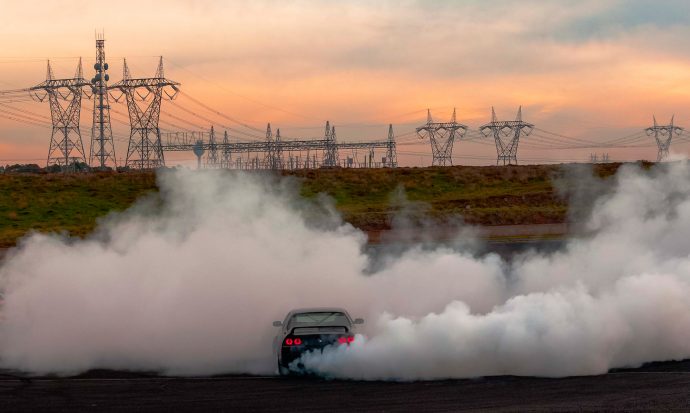
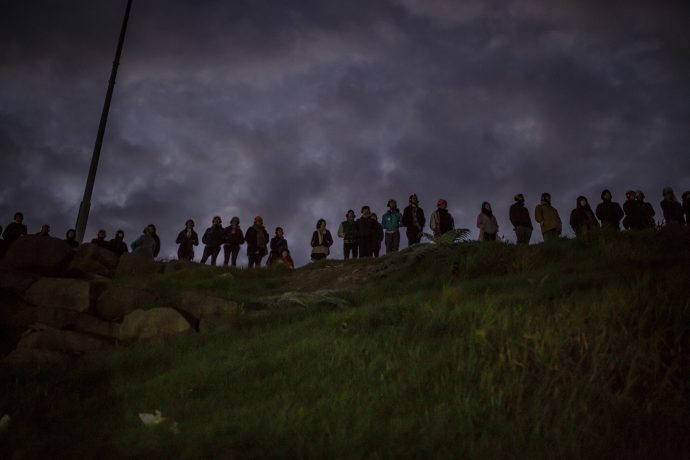
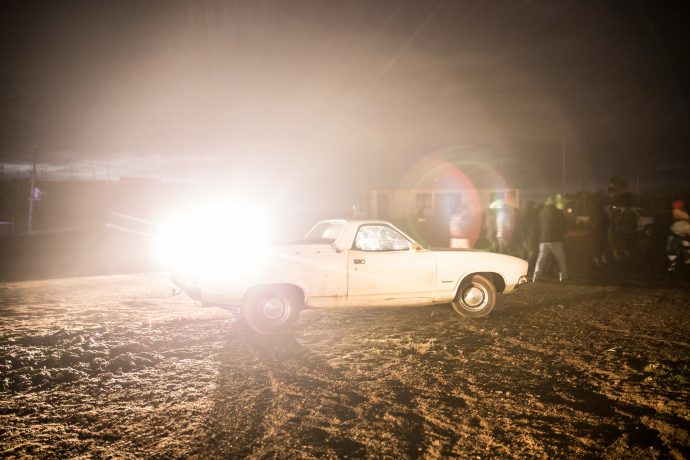
Chronologically situated towards the end of the Anthropocene (the current geological age in which human activity has a significant global impact on climate and the environment), MASS evokes a ceremony to celebrate and bid farewell to what many may consider the high point of human civilisation. The idea that we can continue to embrace Industrial-Age behaviours without effecting long-term impacts on the Earth and its ecosystems is becoming increasingly difficult to defend, and there is growing pressure to take collective responsibility for the destruction we continue to cause. In its contemplative pacing and participatory nature, MASS feels like a coming-of-age ritual both performed and witnessed by the audience, in a transformational ceremony delivering us from childish, carefree recklessness to the sobering responsibilities of reality.
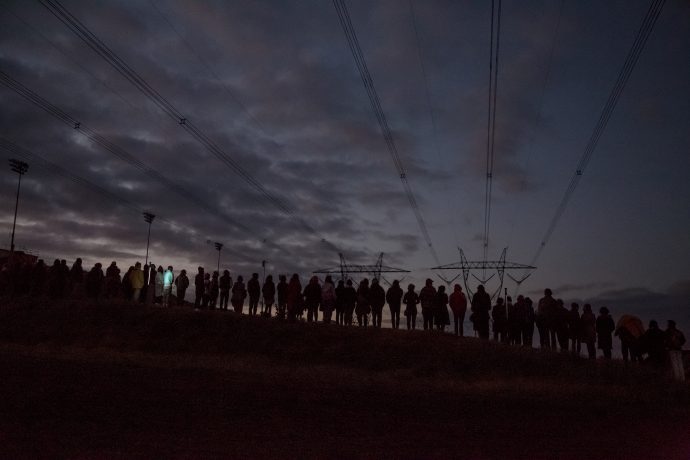
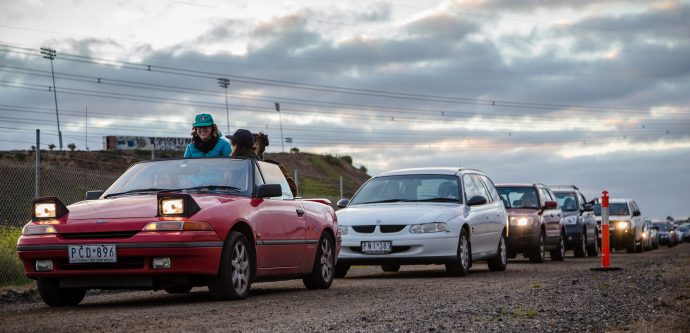
Witnessing MASS, there is a moment when audience members – standing atop a human-made hill, yet dwarfed by towering electricity pylons – watch five cars perform a celestial dance, headlights shining bright in the dusk as they trace circles on the landscape before slowly converging into orbit around a single tree. The circular motion is then echoed by the audience, which walks down the hill and orbits en masse around one of the cars. Watching the cars perform from a distance with the city lights glittering on the horizon evokes a sense of intergalactic time, reframing the present as but a momentary blip in a much larger cosmological timeframe. This awareness of planetary revolutions coupled with a sense of smallness as humans has a humbling effect.
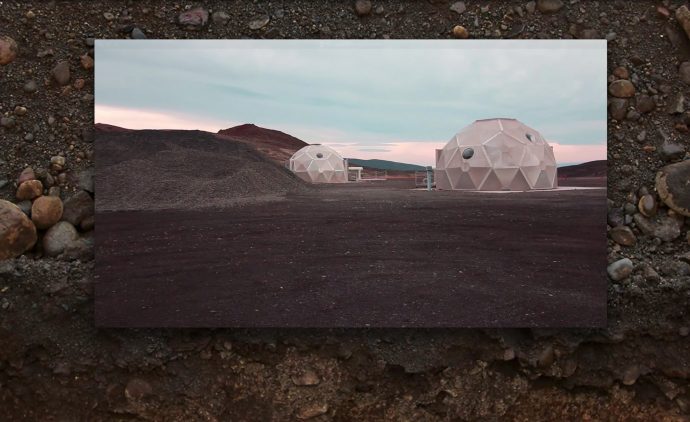
Naomi Klein’s 2014 book This Changes Everything has been an important source of inspiration for Zoe – in particular, Klein’s motto that “to change everything we need everyone.” Through MASS, and the new works she is creating this year, Zoe encourages collective action – “it’s this tipping point of the masses which is really interesting to me.” While Zoe’s works are all grounded in a set of concerns that revolve around humans relationships with the Earth, the universe and time, individually they increasingly engage with specific locations and histories, looking at how particular communities act collectively within distinct times and places.
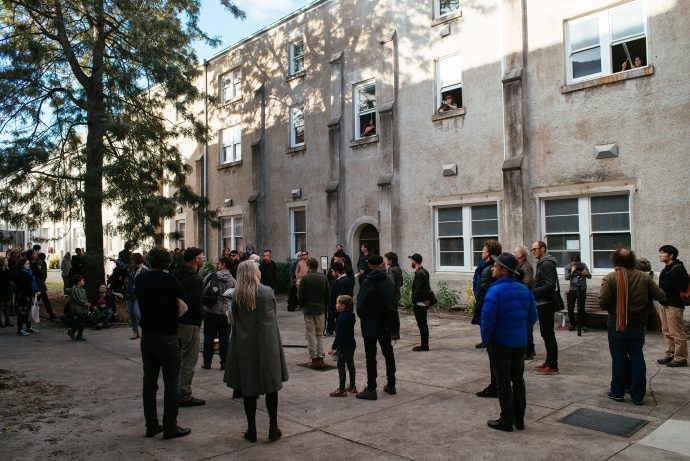
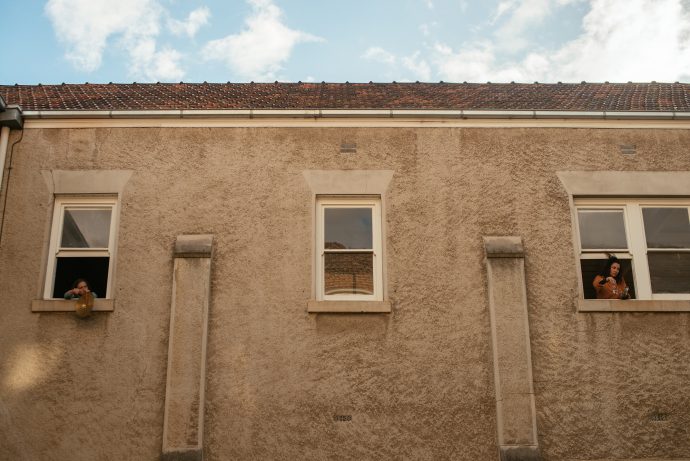
On Sunday 1 May this year, Zoe presented the performance triptych Rehearsing the Revolution at the Abbotsford Convent, as part of the Liquid Architecture event ‘Polyphonic Social: Maydaymaydaymayday’. Each of the three segments involved a mix of performers and audience members making sound collectively (humming, playing pots and pans, mass circumambulation around a central point). The work references traditions of seasonal change, unionist movements and the ‘pots and pans’ protests that Zoe witnessed while in Turkey for a residency in 2015: “At 9 o’clock each night grandmas and grandpas and people from all walks of life were banging pots and pans out of their windows for half an hour as a sign of solidarity with the people who were protesting at Taksim Square. It was a really powerful, beautiful experience to witness, it was very moving.”
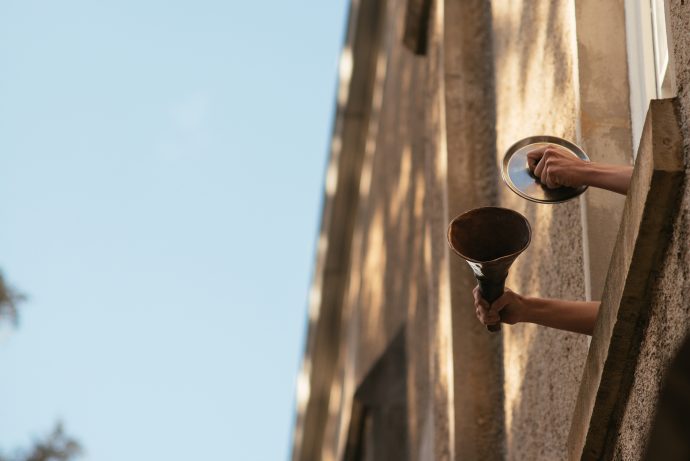
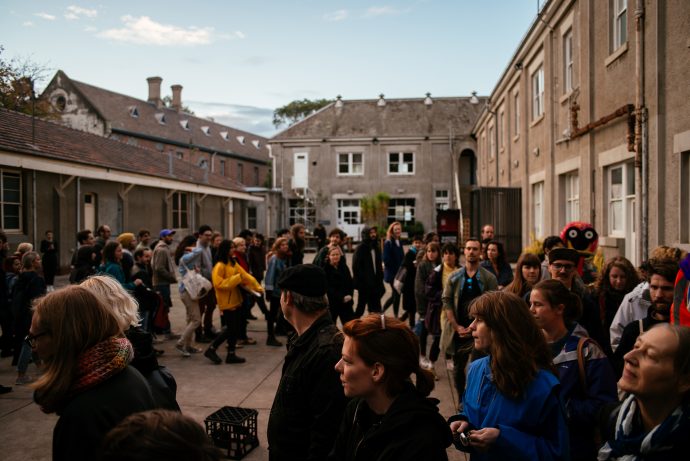
In October, Zoe will engage with two very different communities. In the historic Tasmanian mining town, Queenstown, she will collaborate with artist Mish Grigor to create a new live work for the Unconformity festival, while in the western-Sydney suburb of Fairfield she is developing a project co-produced by Powerhouse Youth Theatre (PYT), the MCA’s C3West program and STARTTS in collaboration with three generations of women living in the area. Titled In the Round, the latter work will be a spontaneous ceremony and gathering at a roundabout – the meeting point of three streets – that will allow the presence of women from three different communities to be felt in the streets through a collective, choreographed performance. Decorated cars will pump composed sound scores through their speakers as they circle the neighbourhood, culminating in a roundabout celebration on the final evening. “With many of my recent works I’m interested in blurring the line between protest and parade,” says Zoe. “By blurring those lines and creating a celebratory and inclusive space, I hope to invite people into a practice of being together in public that allows them to become familiar with the collective power this can generate.”
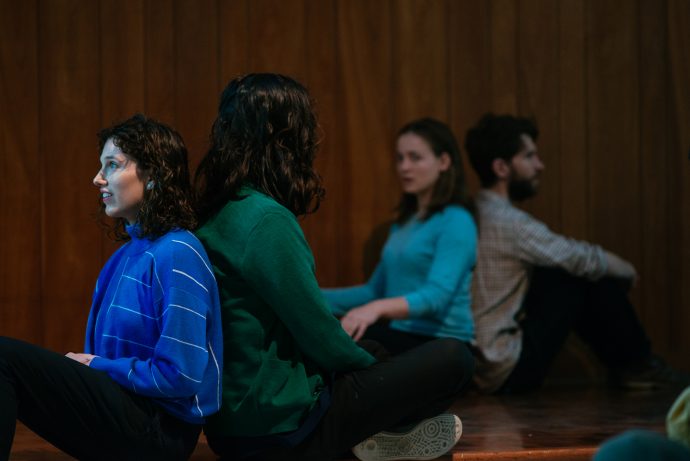
There is always a deliberate sense of pace in Zoe’s work: it has the effect of stretching time and, through that prolongation, slowing you down. The works allow you not only to witness the cosmic tide of evolution and revolution, but to feel it within your own existence. To quote Peter Sellers, who has similarly created intentionally slow-paced theatre works: “When you slow your metabolism down, you feel things you had forgotten.” For Zoe, this is “a practice of remembrance of our origins and the contexts of our lives within a larger narrative.” In particular, she’s interested in “reminding ourselves about these greater narratives, individually and collectively.” That can happen, she says, “when you create the space and time to allow people to slow down, stop and reflect.”
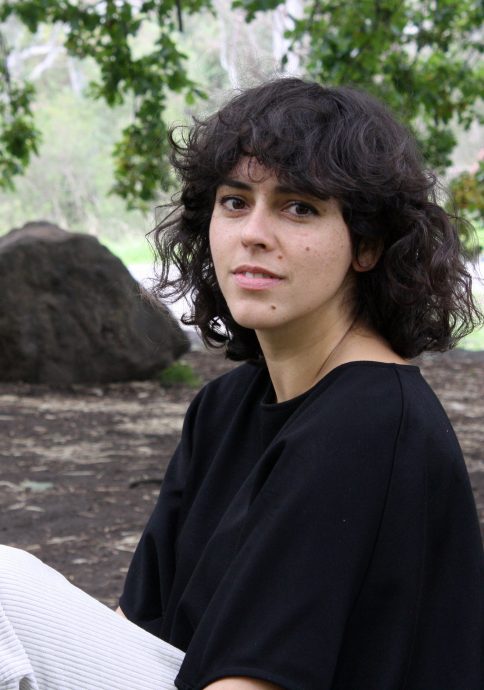
Living in Melbourne’s inner north, Zoe often walks along Merri Creek – a place she calls “a site between worlds.” Deliberately walking in this familiar environment allows her to gain new perspectives on the places she usually frequents on her bike between her home and her studio at the Abbotsford Convent. “It almost feels like there are ancient ruins there, because there are old factories that have been demolished but are still poking up, there are big storm water drains that I love, and there’s native regrowth happening among the European plants. It’s an interesting site because it’s really beautiful but also really disgusting at other times, with run-off from the city and rubbish that gets caught on the leaves in the trees.” In 2014, she filmed those stormwater drain outlets built into the creek’s banks to create Under City, a video piece that marked the entrance to a performance installation in the subterranean trench deep below Federation Square. Eerie and otherworldly, the imagery in the video could be documentation of the ruins of an ancient civilisation, and has the effect of carrying the viewer forward in time and providing an alternative lens through which to view our contemporary urban environment.
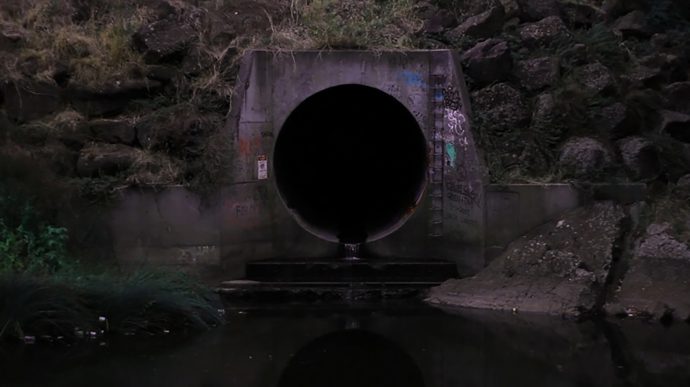
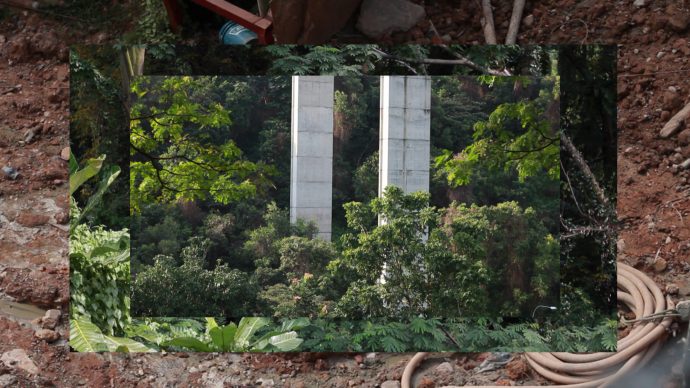
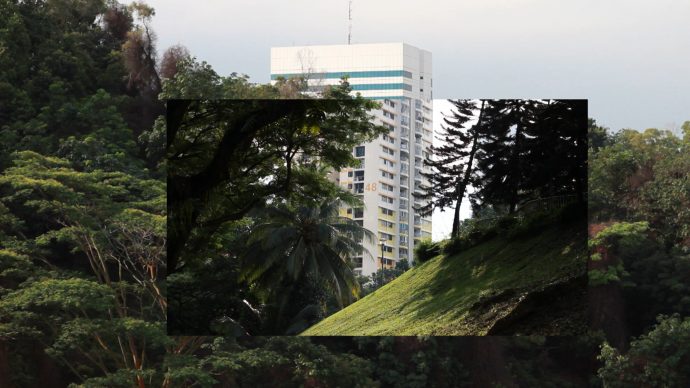
In creating experiences that allow us to feel distant from the present, Zoe’s work encourages us to become aware of the greater cycles we’re part of, and that will continue to take place even after we are long gone. It’s challenging to hold onto this perspective within our daily lives, says Zoe: “A massive change needs to happen in order to combat [climate change] for our own survival as a species. The inability humans seem to have to be able to think beyond our own lifespan – it’s like we need practice or training to extend our thought processes beyond the present moment.” The reflection and memory incited by artworks like Zoe’s remind us of the bigger picture, encouraging us to remember the reasons why we need to act with urgent resolve, and reminding us that where we often have hubris, we can also have humility.
As time presses in like a physical weight, Zoe’s work prompts us to feel the movement of the Earth within our bodies, and to feel and listen to the vibrations generated by that motion. By encouraging us to consider ourselves as part of a planetary revolution, Zoe Scoglio urges us all to think about time.
Huge thanks to Zoe Scoglio for the time she took to speak with us, and to Emma McRae for her wonderful words. To keep up-to-date with what Zoe’s up to, visit zoescoglio.com.
